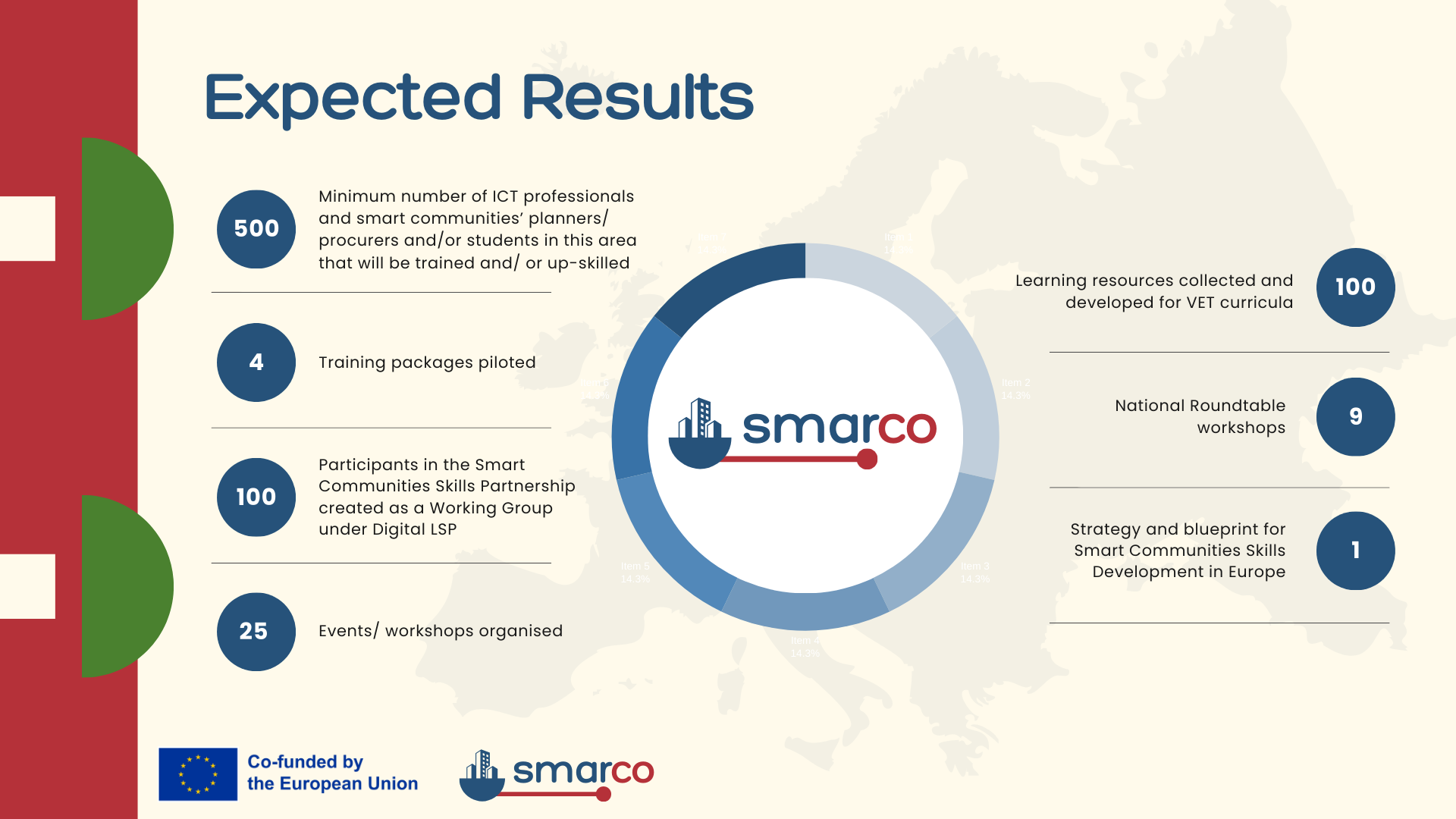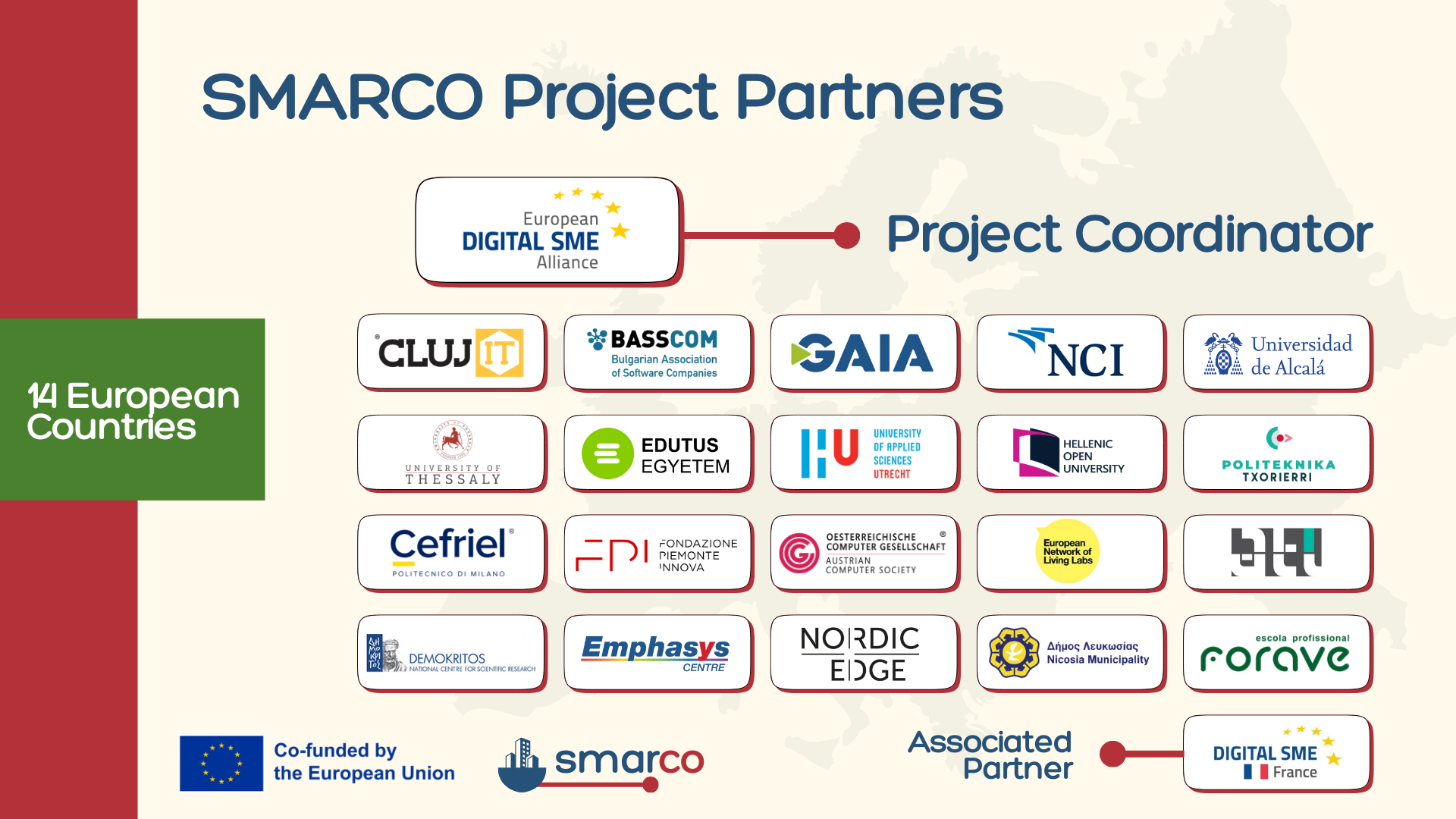With 2030 rapidly approaching and the digital decade target of 20 million ICT professionals in Europe still far out of reach, now is the time to bring together all of Europe’s digital skills stakeholders from Youth Education, Civil Society, Digital Industry and Government to implement innovative new approaches to the digital upskilling of young people.
Our Vision - To create a hugely successful, sustainable, and scalable digital education and upskilling initiative that will empower all young Europeans to embrace digital technologies and pursue a highly rewarding career in Digital.
Our Mission – To reimagine, revamp and relaunch EU Code Week, giving it a mandate to drive real change in digital education throughout Europe, a focus on vastly increasing the number of young people who choose digital careers, and an emphasis on engaging the entire digital skills ecosystem in a common mission to close the digital skills gap in Europe by tackling the problem at its source.
Objectives- Code4Europe will massively scale EU Code Week aiming to impact 25 million young people over the next 2 years. We have co-created a radically different approach to EU Code Week that we believe will deliver real results, while still maintaining and building on the grass roots nature of the initiative, embrace and empower the existing Code Week community, and staying fully aligned with its core values.
Team - In order to make this dream a reality, we have created a very large Consortium of 45 committed and passionate organisations representing all the Digital Education & Skills Stakeholder groups needed to grow EU Code Week to unprecedented levels. Led by Junior Achievement Europe, Code4Europe will unite the Education and Digital Skills communities within one integrated EU Code Week programme. We have joined together to make a real difference in our children’s lives, and together we will empower the new generation of Young Digital Europeans.
To learn more, please visit Code4Europe.
DIGITAL4Business aims to design and implement a highly innovative, effective, and sustainable Joint European Master's in Advanced Digital Skills.
It contributes to the overall objectives of the DIGITAL Europe Programme by fast-tracking graduates through a dynamic pan-European stakeholder ecosystem, where HEIs and Industry work together to design, promote, deliver, and improve an innovative Master's focused on the practical application of Advanced Digital Skills within European Business. As an entirely market-led academic programme, it is driven and designed to meet the current and future (up)-skill needs of SMEs and Companies.
The Master's focuses on the practical application of advanced Digital Skills within Business, including topics such as AI, Cybersecurity, and Cloud Computing, pivotal to European businesses' ongoing competitiveness and growth. Learning units blend academic and industry content to ensure that graduates are equipped with theoretical and employment-ready digital skills that will undoubtedly ensure career success for the candidates.
DIGITAL4Business fosters the industry-recognised skills as a critical element of the learning pathway. Teaching and learning environments will combine in-house tools of the participating organisations and a new 'Master's as a Service' central online platform to enhance learning opportunities for part time students and professionals already in employment. In addition, mentoring programmes with industry partners, hackathons, industry-focused project-based learning, and coaching on soft skills and job profiles will be offered during the programme.
It is intended as a ISCED Level 7 programme with 60 ECTS credits in two different formats, Part-Time and Full-Time, to appeal to different groups of learners. We aim to launch multiple part- and full-time cohorts within the 4-year project duration, with at least 1 part- and 2 full-time cohorts completed within the 4-year duration of the project. The initial part- and full-time cohorts will be deployed as pilots, with cyclical review and improvement after each year.
To keep up to date with our news and events make sure to follow the LinkedIn.

DIGITAL4Security will eventually deliver an innovative and market-led European Master's in Cybersecurity Management & Data Sovereignty that will equip European SMEs and Companies across multiple sectors with the cybersecurity management, regulatory and technical skills they need to prevent and respond to existing and emerging cybersecurity threats, helping to safeguard European industries from cyber-attack.
The programme will be continuously adapting and evolving to address current and future cybersecurity risks and supporting European companies, and in particular SMEs, to minimise security risks, build robust defences, and effectively manage any cyber incident.
Its main aim is to reskill and upskill graduates, professionals, managers, and business leaders to become ‘Cyber Confident’ and empowered with the cybersecurity management expertise they need to strengthen their cybersecurity infrastructure and implement robust incident prevention and management procedures.
It will design and implement a highly innovative, effective and sustainable European Cyber-security Master's to provide a continuous supply of qualified cybersecurity management experts, helping to address the growing cybersecurity skills gap that is endangering the stability of many European industries and public sector institutions.
The programme will be designed to appeal to the broadest possible catchment of potential students and companies from many different sectors, demographics, and cultural backgrounds; ensuring gender equality and including students from diversity groups.
For more information check out the project LinkedIn.
Digital4Sustainability will focus on fast-tracking the Digital & Green Transition within the ICT sector and throughout European Industry, helping companies to adopt advanced digital technologies to achieve their sustainability goals.
The project's goal is to design a new Digital Sustainability Skills Strategy and an innovative Training Programme that will provide companies with the advanced digital and green skills they need to build concrete ESG initiatives that deliver real results.
The project's goal is to design a new Skills Strategy and VET / HE Learning Programmes that will address the urgent and emerging skills needs of Industry in the key areas of Digital & Green. It will focus on training a new breed of Digital Sustainability Professionals through VET providers and Higher Education Institutions, and the re/upskilling of the existing ICT and Industry workforce via structured work based learning and short-term modular courses.
Digital4Sustainability will help non-tech industries to adopt these new technologies, while providing the ICT sector with training and support to create effective digital solutions that reduce energy, carbon and waste within industry. Finally, the project will provide digital sustainability skills intelligence and long-term Skills Strategy to foster sustainable digital upskilling after the project lifetime and support the overall implementation of the Digital Ecosystem large-scale skills partnership under the Pact for Skills.
The training units will focus on upskilling & reskilling existing ICT & Sustainability professionals through higher education and work based learning, educating and empowering Business Leaders through short courses and training.
For more information on the project visit the DIGITAL4Sustainability website or check out the LinkedIn page.
The Government of Ireland Postdoctoral Fellowship is an established national initiative funded by the Department of Further and Higher Education, Research, Innovation and Science.
Titled "Parallel Processing of Secure Machine Learning Models based on the Residue Number Systems in Cloud environments," the fellowship research is led by Dr Jorge Mario Cortes Mendoza, with the Academic Mentor Prof Horacio González-Vélez at the Cloud Competency Centre. Current collaborators include the Faculty of Mechanical Engineering at Cracow University of Technology.
About SMARCO
SMARCO strives to become a unique one-stop-shop for smart community skills focusing on the three main aims:
- To ensure the development of resilient and sustainable smart communities by addressing the skills gaps of smart city engineers and planners/procurers through the development of urgent upskilling courses and forward-looking training programmes;
- to grant flexible and user-centric learning, trans-national dimension and learning mobility, as well as a wide recognition of trainings through the development of micro-credentials, training certificates and wider certification scheme;
- to create a sustainable community of stakeholders to discuss, share and scale training, upskilling and reskilling linked to smart communities’ skills and relevant best practices via participation in the Pact for Skills (and its Digital Large-scale ecosystem) and the organization of roundtables with decision-makers.
Expected Results

Click here to enlarge image.
Consortium Partners
SMARCO is a 48 months Erasmus+ project (2025-2029), coordinated by the European Digital SME Alliance, with the contribution of CLUJ IT Cluster, BASSCOM, Cluster GAIA, National College of Ireland, Universidad de Alcalá, University of Thessaly, Edutus Egyetem, Hogeschool Utrecht, Hellenic Open University, Politeknika Txorierri, Cefriel, Fondazione Piemonte Innova, Österreichische Computer Gesellschaft, ENoLL, ATI Comunicación, NCSR Demokritos, Emphasys Centre, Nordic Edge, Nicosia Municipality, Forave, and the associated partner DIGITAL SME France.

Click here to enlarge image.
Contact
Funded by the European Union. Views and opinions expressed are however those of the author(s) only and do not necessarily reflect those of the European Union or the European Education and Culture Executive Agency (EACEA). Neither the European Union nor EACEA can be held responsible for them.
